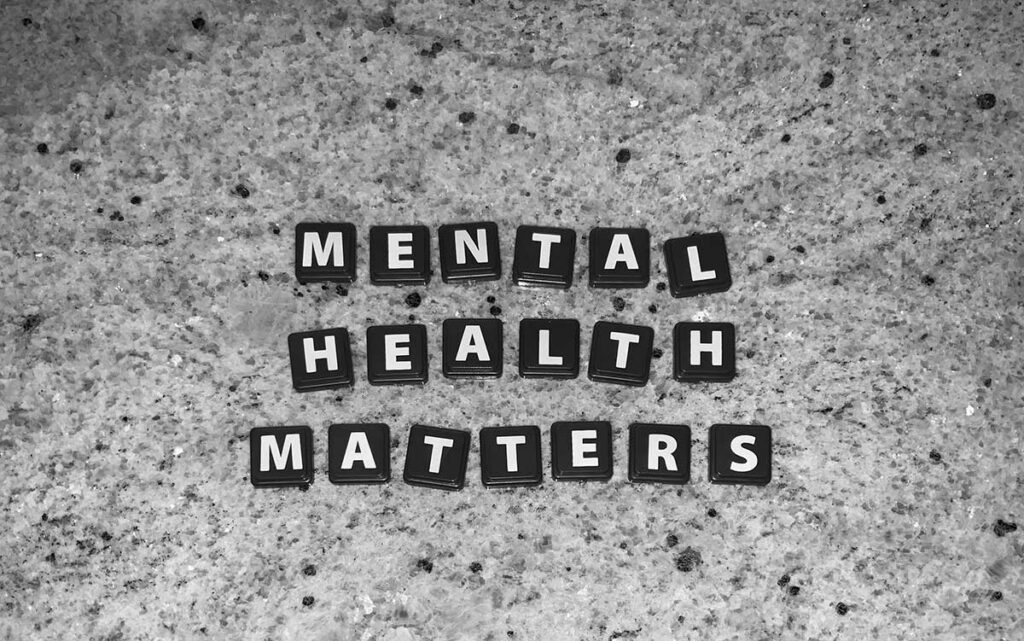The COVID-19 pandemic is no doubt one of the most significant and one of the most challenging events of our lifetimes. COVID-19 has infected hundreds of millions of people worldwide, and has killed many millions from every corner of the globe. It makes sense, then, that many people are struggling with the trauma that COVID has incurred.
Even if you haven’t been infected by the virus, the chances are good that you know someone who has. You might even know someone who has died from COVID. The stress and worry about the health and well-being of your loved ones, and worse, the stress and worry of dealing with the death of a loved one, can have significant effects on your short-term and long-term mental health.
The ancillary effects of the pandemic – job loss and housing insecurity, for example – can add even more stress and anxiety to an already tenuous situation. Add in lockdowns, travel restrictions, and the inability to see family and friends, and you have a recipe for the occurrence of significant mental health challenges.

Navigating all of these components of the pandemic is difficult, to say the least. But there is a resource that’s easily accessible that can help you cope better with the effects of the pandemic – psychologists.
Psychologists can do a lot to help you manage the emotional toll the pandemic is taking. Whether you see a psychologist in person or via video chat, they can help you work through the emotional pain of losing a loved one, build skills that help you be more optimistic and resilient, and connect you with resources that can help you manage the social, financial, and economic hardships that COVID has brought about.
In other words, psychologists are critically important to our health care both now and in the post-COVID era. Let’s have a look at a few of the ways that psychologists can help us get through the rigors of the pandemic.
Psychological Research
One of the most critical areas in which psychology will prove important in the post-COVID world is through psychological research on how the pandemic has impacted mental health.
Obviously, a global pandemic that has had negative impacts on such a significant level is bound to have a negative effect on people’s mental health. But we need to know much more than that. Instead, psychological research can be informative as to the specific mental health effects that the pandemic has on different groups of people.
For example, psychologists might study the effects of pandemic-related lockdowns on the social and emotional development of children. By studying these effects, psychologists can shed light on the potential setbacks that children will face as a result of time away from their peers and time out of school.

By identifying the consequences of the pandemic on child development, psychologists can work with other professionals to develop interventions that target a specific set of setbacks that children are commonly facing, like an increase in social anxiety and a decrease in grade-level academic abilities.
This is just one example, of course. Psychological research can inform us about many other important issues that range from adult mental health to the incidence of divorce among married couples to the dynamics of the family unit in lockdown. Knowledge is power, and psychological researchers can provide us with the power to better understand the short-term and long-term effects that we are likely to experience as a result of the COVID-19 pandemic.
Mental Health Services
Of course, psychologists also provide mental health services that can help people that are struggling with the effects of the pandemic to function at a higher level.
Psychological services run the gamut from therapy to skill-building exercises to administering psychological assessments. This is not a complete list, by any means, but it’s illustrative of the fact that mental health services come in all sorts of shapes and sizes.
For example, let’s consider that you might have lost your job due to shutdowns from the pandemic. You might seek career counseling services to help identify your strengths and interests so you can be better prepared to find new employment.

As a result of the job loss, you might be a little down and discouraged and need someone to talk to. Therapy with a psychologist is an ideal option to help you work through your feelings and emotions.
You might even seek assistance from a psychologist to learn new parenting skills that will make you a more effective parent to kids that are stuck at home amid school closures.
The point is that people are already taking advantage of mental health services to address COVID-19-related problems. And continuing to do so in the future will only help ease the transition from living with COVID to returning to a more normal way of life.
Policy Development
Many psychologists worry about the long-lasting effects on mental health after the pandemic is over.
In particular, it’s reasonable to assume that depression and anxiety – two conditions that were already common before the pandemic – will increase. Likewise, post-traumatic stress disorder might be seen in greater numbers as the pandemic begins to wane, but people continue to struggle with its impact on their lives.
Therefore, it’s necessary for psychologists to continue adding to the conversation about policy development at the local, state, and national levels. This can take a variety of forms.
For example, psychologists can be valuable assets for lawmakers who are considering funding levels for mental health programs. Since mental health issues are likely to be more widespread as a result of the pandemic, it’s important that governments properly fund mental health programs for their citizens.
As another example, psychologists can advocate for improved and expanded mental health services in public schools. As noted earlier, many kids are falling behind from a developmental standpoint due to in-person learning being canceled in so many areas. To support children’s social, emotional, and cognitive development, psychologists that specialize in school psychology, child psychology, and human development will need to play a larger role in the educational process in the post-COVID world.
Psychology is Important Now and in the Future
When thinking about the benefits of psychology to our mental health, it’s important that we don’t compartmentalize those benefits as “current” and “future.” Instead, the inroads we can make now in terms of improving people’s access to psychological services will make the transition into the post-COVID world a much smoother one. By laying the foundation now for expanding psychological services, increasing funding for psychological research, and educating the public about how to utilize psychological services, we will be all the more prepared to deal with the fallout of the pandemic in the future.